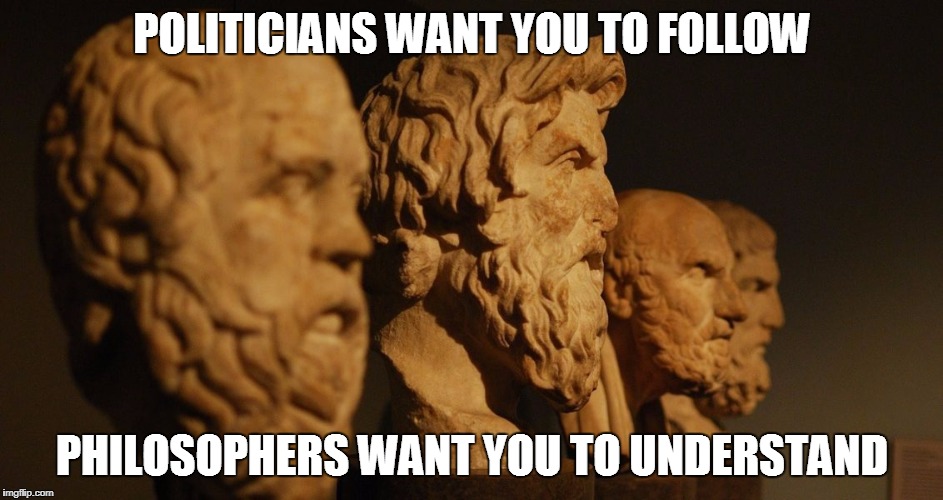Information dissemination is, after all, one of the Think Tank's primary reasons for being.
It's rare that I find an article, or transcript, like the TED Talk by Haidt linked above that simultaneously floors me and resonates with a handful of my own half-formed theories on human behavior. Such resonant material, like the articles by Camille Paglia that Jeff linked for me years ago, deserves to be placed in front of as many eyeballs as possible.
As to the specific mechanisms/obstacles which prevent/hinder us from 'coming together,' to paraphrase your post above, that's actually pretty simple and can be boiled down to a single word that describes the oft-manipulated psycho-social mechanism behind our ongoing separation: tribalism.
And let me be clear: in my opinion, tribalism is GOOD. It is NATURAL. And more important that any of that, it is HUMAN! Denying a fundamental aspect of who and what we are is a surefire way to fail in whatever efforts follow that denial. The trick, I think, is in arranging the priority of tribes in each of our minds--and this is where we get manipulated by the Powers That Be into working against each other instead of alongside one another.
Think of it this way: let's say you're a man who lives in Seattle, WA; you've got a wife and two kids; you're an ex-military serviceman; you're a registered Democrat; and you belong to your local Baptist Church. How do you prioritize these facets of who you are? Does your 'husband' role take priority over your 'father' role? What about your citizenship? Does your USA citizenship take precedence over your Washington State residency? How about your religion, is it of greater priority, for you, than your military service history and the bonds made therein? These are individuated questions for which there is no 'right' answer, but my worry is that people are increasingly dividing us into smaller and smaller buckets and subgroups in an effort to keep us from coming together. 'Divide & Conquer' isn't just a catchy phrase, after all.
The Powers That Be (whether they're politicians, media titans, entertainers with ulterior motives, or anyone else who seeks to manipulate your behavior rather than to simply inform you) would like to manipulate your priorities in such a way that is favorable to their agenda. So if it's a Presidential election year, the D on the ticket is goign to appeal to the fact that you're a lifelong registered Democrat--this will be pushed so hard that, at times, said D might go so far as to suggest that supporting the R makes you unworthy of citizenship in the USA. This is an attempt to subordinate your USA Citizenship to your Democratic Party affiliation, and the sad truth is that this particular approach *appears* to succeed more often than it fails, atl east these last few decades. (and, again, to be clear: ALL politicians employ this tactic; it's not confined to 'one side' of the political aisle. but most people in Seattle are, in fact, Democrats so it fits the narrative)
The reason Free Speech was given primacy in the USA's founding charter was to ensure that people *could* always come together to talk difficult issues through. It ensured that, if we were so inclined, we could sit down and discuss important ideas without fear of retribution from those whose hands rest on the levers of power. It was designed to enable us to inform ourselves, and each other, and in the end that's the only way to fight against the more pernicious effects of tribalism.
I can't find the quote from Thomas Jefferson regarding advocacy vs. enlightenment/truth-seeking, but the sentiment was pretty simple: the two are mutually exclusive. If you're fighting to advance a given cause, you're necessarily closing your mind to the possibility that your efforts are not only potentially wasted, but actually counterproductive. Advocacy appeals to tribalism, obviously, and therefore presents major impediments to our ongoing enlightenment, both individually and societally.
And to finish this absurdly lengthy, rambling mini-essay, I'll say that a (THE???) key difference between politicians and philosophers is this: politicians want you to follow ; philosophers want you to understand .
